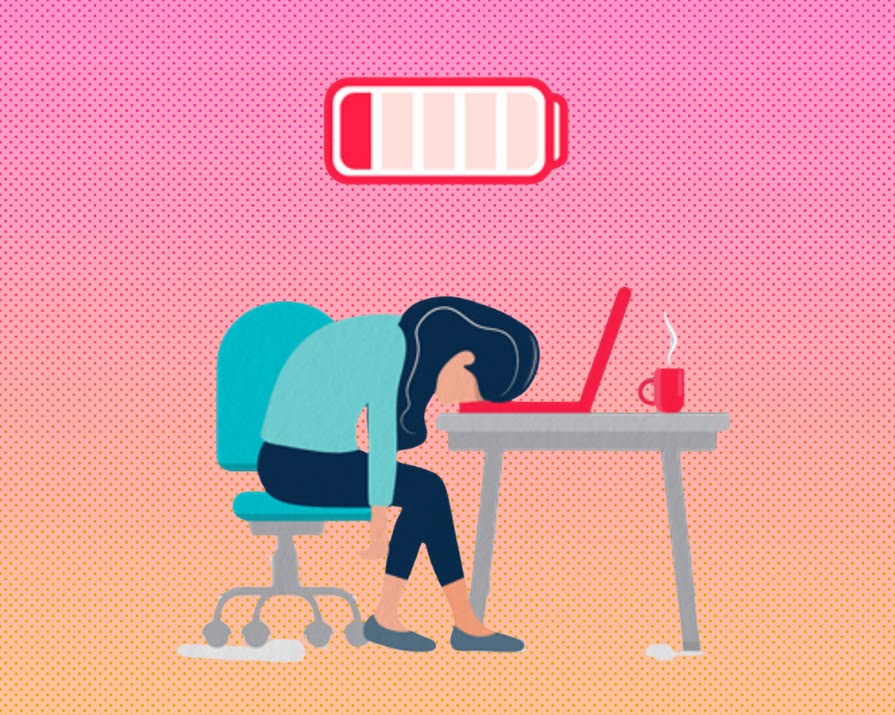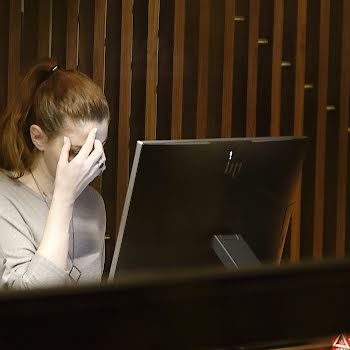
How to break through burnout and the signs to watch for
By Niamh Ennis
07th May 2024
07th May 2024
Burnout is a state of physical, emotional, and mental exhaustion brought on by prolonged stress or overwork. Here are the signs to watch out for and the strategies to navigate your way back.
Looking back, perhaps we were collectively a little naïve, post-pandemic, believing that our new-found way of hybrid working would result in us slowing down. We even convinced ourselves that a four-day week would bring about that elusive balance and rest we were all chasing. The reality however is a little different. Whatever lessons we learned during that time, that there might be a better, easier way to work has, in the main, all but disappeared. In its place, the only real change is where people work from but not how much!
As our world is getting busier with more distractions, the pressure to keep moving and changing at the same pace as everyone else is real. I’ve had far more conversations with clients than ever about increased feelings of stress and overwhelm. Amidst this, burnout can often lurk in the shadows, ready to derail even the most conscientious among us.
In the interest of full transparency, I have to admit that the irony is never lost on me when I ask those same clients to slow down and factor in more rest and downtime into their working days – usually as I bounce from one ten-hour day to the next. Of course, I know that there’s no escaping the warning signs when we’re doing too much. For me, the real tell-tale sign is always when my neck and shoulders seize up suddenly and without warning. I’m simply forced to stop. We should never let it get to that stage. But the point is that we do.
Understanding burnout
In case you’re thinking a good night’s sleep will fix all burnout, let me remind you that it really isn’t just about feeling tired or stressed; it’s actually a state of physical, emotional, and mental exhaustion brought on by prolonged stress or overwork. It can sneak up when you’re passionately pursuing your goals, juggling multiple projects, and constantly pushing yourself to keep up and do more.
What are the signs?
Recognising these early is key to preventing it from spiralling out of control. Some common signs include:
Chronic fatigue and lack of energy, even after periods of rest.
Decreased motivation and engagement in activities you once enjoyed.
Increased cynicism or detachment from your work or goals.
Difficulty concentrating and an inability to make decisions.
Physical symptoms like headaches, insomnia and in my case severe neck pain.
Burnout is a reality that many of us face, regardless of our profession or personal pursuits. As transformational beings, we’re often deeply committed to our work and the impact we want to create in the world. Yet, this commitment can lead us down a path of pure exhaustion and overwhelm.
Strategies to navigate your way back
Build better boundaries: learn to say no to things that drain your energy or overwhelm you. Remember those that resist your boundaries are the people that benefit from you having none.
Prioritise looking after yourself: self-care isn’t selfish; it’s essential for sustaining our energy and resilience. Make time for more activities that nourish your body, mind, and soul, whether it’s exercise, meditation, gardening or listening to music.
Ask for help: don’t be afraid to reach out for support when you need it. Whether it’s talking to a trusted friend, seeking guidance from a mentor, or working with a coach, having a support system can make a world of difference.
Reassess what matters to you: take a step back and reassess your goals and priorities. Are you pushing yourself too hard? Are your goals aligned with your values and passions? If they’re not, it might be time to reposition yourself.
When burnout occurs, it’s important to approach it with compassion and curiosity rather than judgment. This may require the rebuilding of better boundaries, reassessing your personal priorities, or giving yourself permission to seek support from others.
It’s also about recognising that there is always a way back and how it can indeed be a catalyst for growth and innovation. By embracing the lessons of burnout with an open heart and a growth mindset, we can and will emerge stronger, wiser, and more empowered than ever before.
Ultimately, navigating your way through burnout can be a transformative journey in itself, one that deepens your resilience and strengthens your connection to your purpose.
Just be careful not to throw out the baby with the bath water and consider that the answer to burnout is not always necessarily less work, it might also be about injecting more meaning into what it is you do and how you go about it. And then rest.
Niamh Ennis is a leading Transformation Coach & Business Mentor who through her private practice, programmes, workshops, and podcast has helped thousands of women to find clarity and confidence to create a life and business that they love. She’s an accredited Leadership & Executive Coach and Lead Coach in the IMAGE Business Club. You’ll find Niamh on niamhennis.com or on Instagram @1niamhennis.























